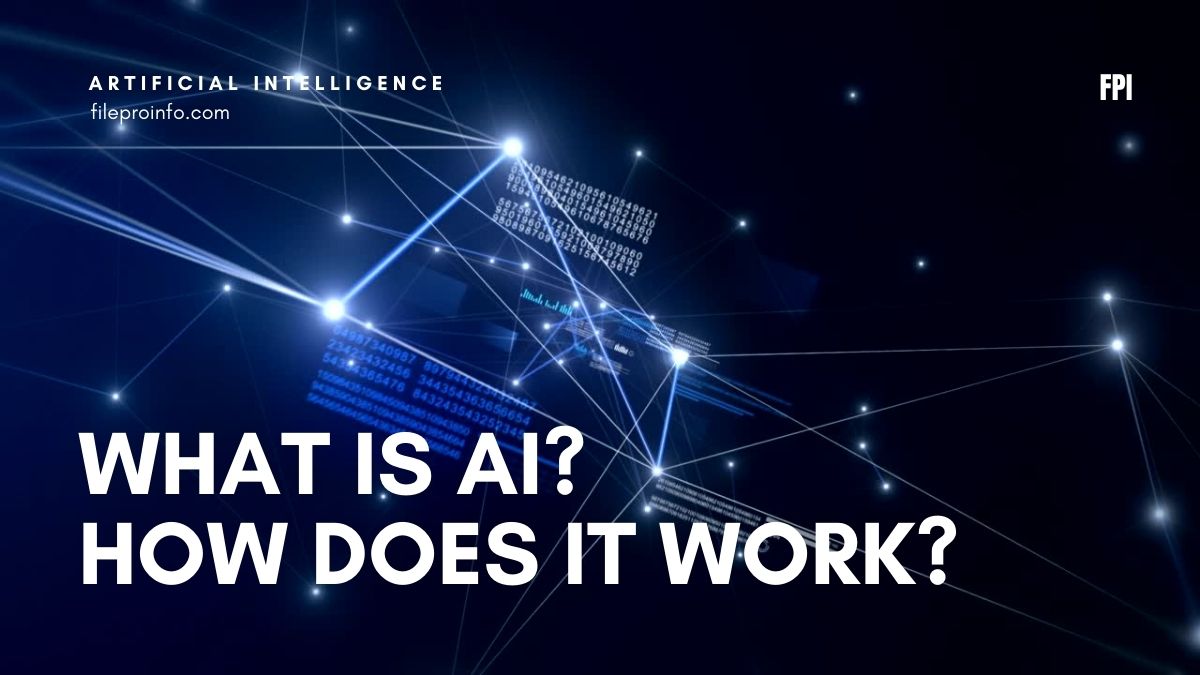
Have you ever wondered what artificial intelligence is and how it works? Let’s talk about artificial intelligence, what it is and how it applies to marketing.
What exactly is artificial intelligence?
AI stands for “artificial intelligence,” and we use it to describe any time a computer does something that would require human intelligence — or anything that mimics human intelligence, in any case.
AI in marketing is already common, and you most likely interact with it on a daily basis. Here are some examples of how you can interact with artificial intelligence:
- AI (algorithms such as Rankbrain) is used by search engines such as Google to determine the most relevant result for a search.
- Automated marketing emails use artificial intelligence to determine which emails to send based on how you’ve interacted with a company or website.
- AI is used in a variety of online ads to determine who should see a specific ad based on past behavior, interests, and search queries.
- Chatbots are becoming more common in online messengers, allowing larger brands to help customers quickly and efficiently.
- AI is used in voice searches on smart speakers and even smartphones to determine the best results for long-tail keywords and conversational queries.
How does artificial intelligence work?
Machine learning is used in artificial intelligence to mimic human intelligence. Because the computer must learn how to respond to specific actions, it employs algorithms and historical data to construct what is known as a propensity model.
Propensity models will then begin to make predictions (like scoring leads or something).
AI is capable of much more, but these are the most common uses and functionality for marketing. And, while it may appear that machines are ready to take over, humans are still required to do much of the work.
We primarily use AI to save time by adding people to email automation and letting AI do much of the work while we focus on other tasks.
How does artificial intelligence (AI) help marketers?
AI is frequently used in the marketing we do for clients here.
Local search results, for example, are determined in part by AI determining what is the best business for a searcher’s needs. So, when someone searches for “pizza,” artificial intelligence must determine whether the person wants to learn more about pizza or find a pizza place, and if it believes the person wants a pizza place, it must determine which pizza place is the best answer for the search.
And, depending on who AI determines to be the right audience for an ad, the ads we create for clients are shown to local consumers.
Still, we have to do a lot of the heavy lifting ourselves, such as creating campaigns, claiming and optimizing listings, and so on. This may change in the future, but for the time being, marketing is a very hands-on industry that requires someone to keep an eye out for new trends — and even changes in AI.
Consider the times. Google’s algorithm changes and businesses are automatically penalized for doing something that did not get them into trouble in the past. While artificial intelligence is still prevalent in the strategy, you need someone to keep an eye on your marketing to ensure that AI isn’t harming it.
It’s also critical to ensure that your marketing has a human touch.
As nice as it would be to set up your marketing and let it run wild on its own, bringing you new customers every day, that is simply not possible right now.
Do you want to learn more about artificial intelligence? Keep an eye out for more blog posts on this topic from us!
Learn more from Artificial Intelligence and read Tech CEOs Should Master These Top 10 AI And Data Science Skills.